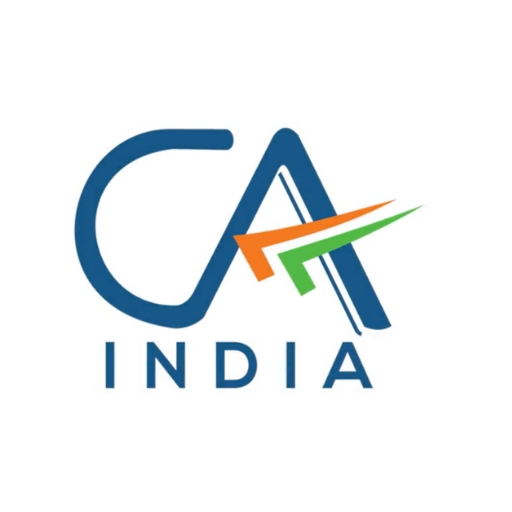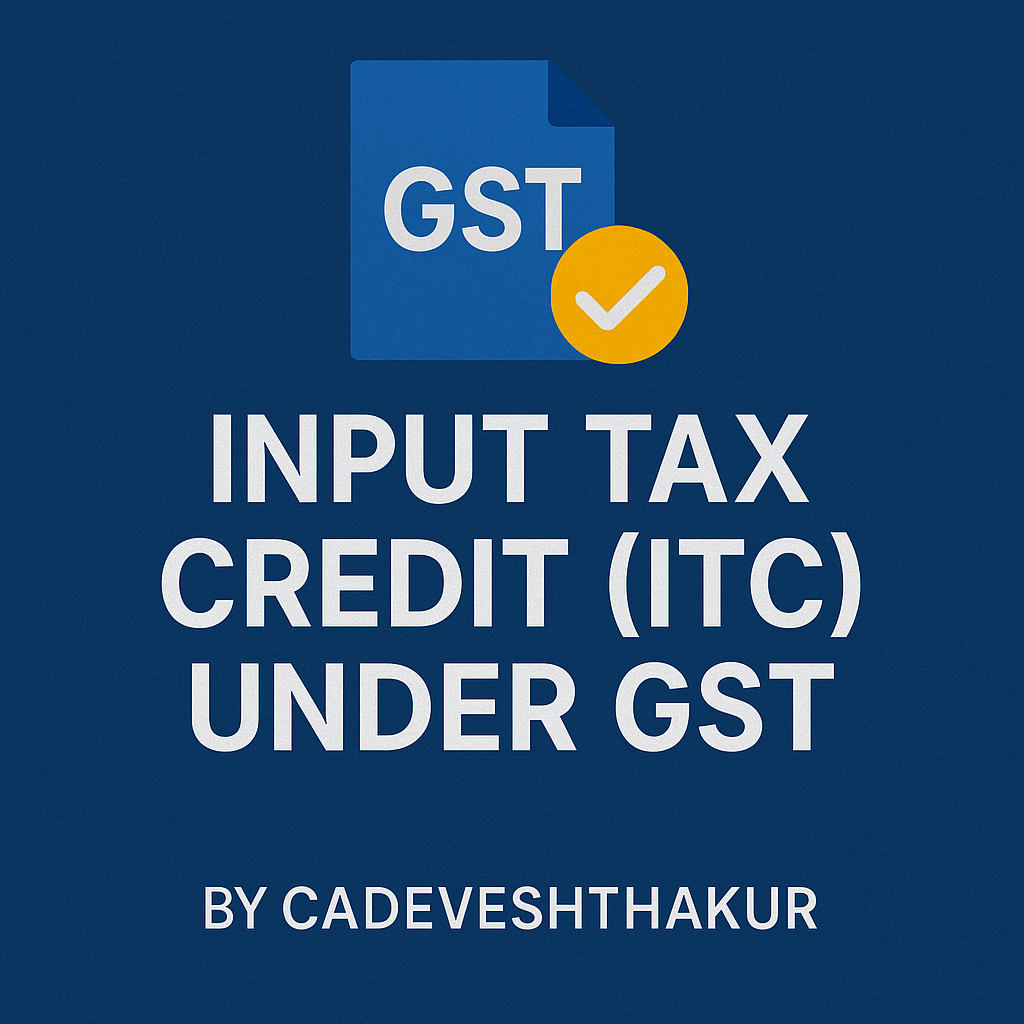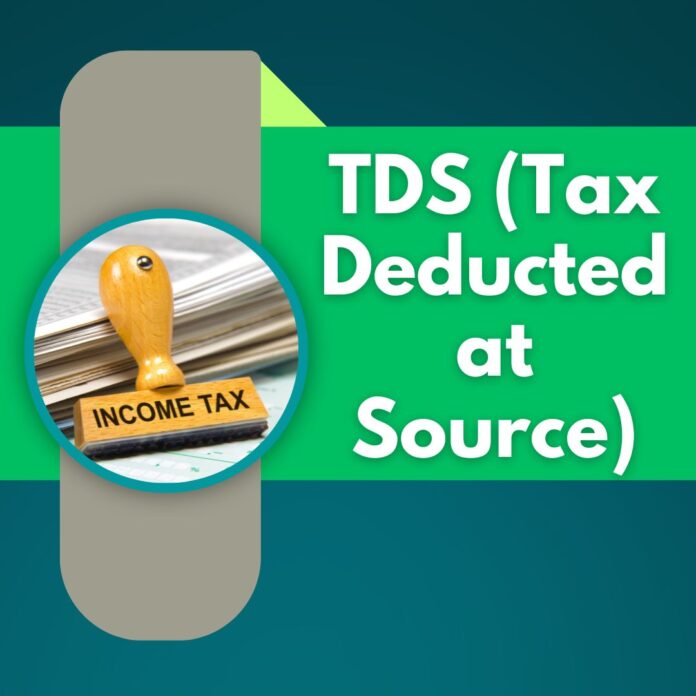Author: CA Devesh Thakur
Category: GST Basics | 30 Days GST Challenge – Day 11
Introduction
Input Tax Credit (ITC) is one of the fundamental and most beneficial concepts under the Goods and Services Tax (GST) regime. It allows taxpayers to claim credit for the GST paid on purchases (inputs, input services, and capital goods) which can be used to set off against GST payable on outward supplies.
This blog aims to simplify ITC for students by explaining its meaning, eligibility, restrictions, and practical examples to clarify the provisions.
1. What is Input Tax Credit (ITC)?
ITC is the credit that a registered person can claim for the tax paid on purchases of goods, services, or both which are used for the purpose of business.
Under GST, the cascading effect of taxes (tax on tax) is removed by allowing ITC. The tax paid at each stage is available as a credit at the next stage, reducing the overall cost burden.
2. What Are Inputs, Input Services, and Capital Goods?
| Category | Meaning |
| Input | Goods other than capital goods used or intended to be used in business. |
| Input Services | Services used or intended to be used in the course or furtherance of business. |
| Capital Goods | Goods capitalized in books of account and used in business. |
There is no distinction between input and capital goods for claiming ITC under GST. Full ITC is allowed on capital goods in the year of purchase without any restriction.
3. Conditions for Availing ITC
- Goods/services/capital goods must be used for the purpose of business.
- The recipient must be a registered person under GST.
- Invoice or debit note must be available as proof.
- Goods/services must be received.
- Supplier must have paid tax to the government.
- ITC must be claimed within the time limit prescribed under section 16(4).
4. State-wise Registration and ITC
- GST is divided into:
- IGST (Inter-State transactions)
- CGST + SGST/UTGST (Intra-State transactions)
There is no centralized GST registration. A business must obtain separate registration in each state where it operates.
ITC is state-specific, which means:
ITC availed in one state cannot be used to pay output tax liability in another state.
5. Reverse Charge Mechanism (RCM) and ITC
Under RCM, the recipient of goods/services is liable to pay GST.
- GST paid under RCM is eligible for ITC if:
- The goods/services are used for business.
- The tax is paid and reflected in GSTR-2B.
6. Composition Scheme and ITC Restriction
- Taxpayers under the Composition Scheme cannot collect GST and also cannot avail ITC on inward supplies.
- Similarly, if goods/services are purchased from a composition dealer, ITC is not available.
7. Cross-Utilization of ITC (Set-Off Rules)
| ITC Type | Can Be Used To Pay | Cannot Be Used To Pay |
| IGST | IGST → CGST → SGST | — |
| CGST | CGST → IGST | SGST |
| SGST | SGST → IGST | CGST |
These rules ensure proper allocation of tax revenue between Centre and States.
8. When ITC is Not Available
ITC is not available in the following cases:
- If GST is not payable on outward supply (i.e., supply is exempt).
- If goods/services are used for personal purposes.
- If goods/services are used for non-business purposes.
9. Zero Rated Supplies vs Exempt Supplies
Zero Rated Supplies:
- Export of goods/services.
- Supplies made to Special Economic Zone (SEZ).
These are tax-free supplies, but ITC is allowed and refund can be claimed under Rule 89.
Exempt Supplies:
- Supplies on which GST is not leviable or NIL rate.
- ITC is not allowed on inputs/services used for exempt supplies.
10. Practical Example: X Ltd. Case Study
X Ltd. manufactures electric detonators and supplies both domestically and exports.
Details:
- Domestic Supply: 10,000 pieces @ ₹120 to Y Ltd. (Kerala)
- Export Supply: 25,000 pieces @ ₹140 to A Inc. (Holland)
- GST Rate: 18%
- Input Tax Credit Available:
- Situation 1: ₹1,50,000
- Situation 2: ₹2,90,000
Tax Computation:
| Particulars | Situation 1 ₹ | Situation 2 ₹ |
| IGST on Domestic Sale | 2,16,000 | 2,16,000 |
| GST on Export | Nil | Nil |
| Total Output Tax | 2,16,000 | 2,16,000 |
| Less: ITC Available | 1,50,000 | 2,90,000 |
| GST Payable in Cash | 66,000 | Nil |
| Refund Claimable (on exports) | Nil | 74,000 |
Conclusion:
Exports are zero-rated. GST is not charged, but ITC is available and refund can be claimed.
11. Proportionate Reversal of ITC
If inputs or capital goods are used for both taxable and exempt supplies, a proportionate amount of ITC must be reversed as per formula under GST Rules.
12. ITC on Waste and By-Products
- Full ITC is allowed even if part of input results in:
- Waste
- Scrap
- By-products like sludge (non-taxable)
13. Timing of Claiming ITC
- ITC can be claimed once goods/services are received.
- It is not necessary to wait till goods are used or sold.
- All ITC forms a common pool, which can be used as per set-off rules.
14. Definition of “Input Tax” [Section 2(62)]
Input Tax includes:
- CGST, SGST, IGST, UTGST on purchases
- IGST on import of goods
- Tax payable under RCM
But does not include tax paid under Composition Scheme.




